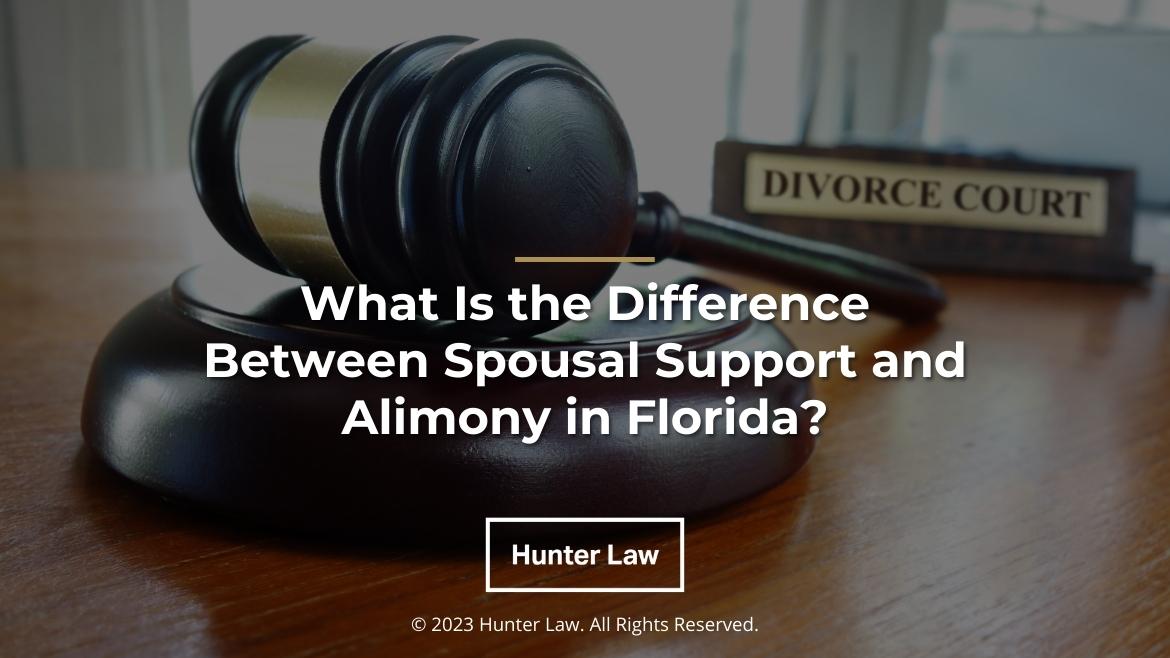If you believe a divorce is in your new future, you might wonder whether you’ll be required to pay spousal support or alimony to your soon-to-be ex-spouse. Read on to learn more about the differences between alimony and spousal support in Florida and what they might mean for your divorce.
What Is Spousal Support in Florida?
Spousal support— also called alimony—is financial support made by one ex-spouse to another. It can include one-time payments or regular payments for a set duration of time.
For example, if a Tampa married couple gets divorced, but the wife is unemployed and unable to make significant income to cover her expenses at the time of the divorce, the husband may be required to make spousal support payments to her.
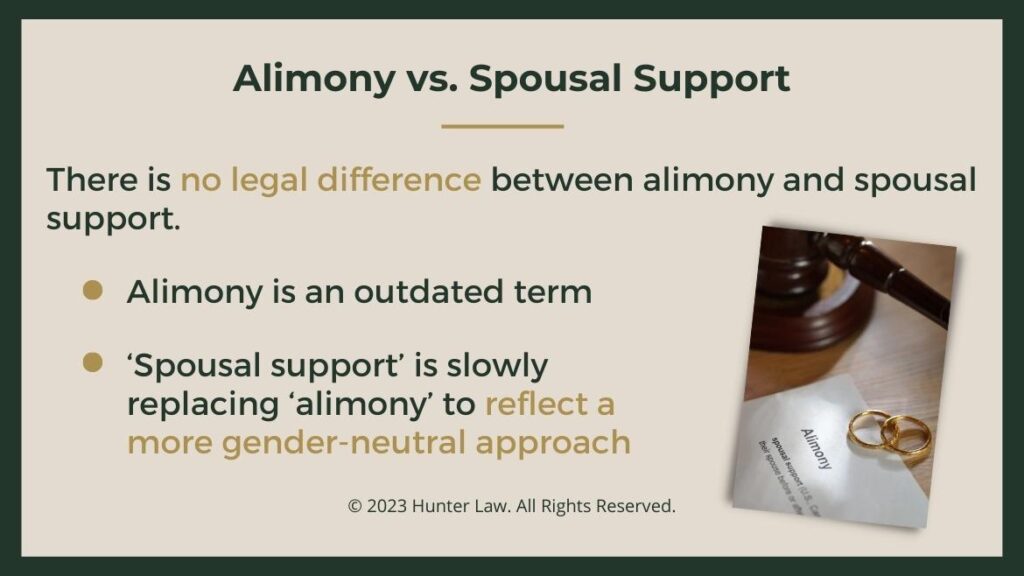
Difference Between Alimony vs. Spousal Support
So what is alimony? There is no legal difference between alimony and spousal support. Alimony is an outdated term that previously described ongoing or one-time payments made from one ex-spouse to another: typically the husband to the wife.
Although still used in the statutes, the term ‘spousal support’ is slowly replacing ‘alimony’ to reflect a more gender-neutral approach to the topic. These days, wives can make spousal support payments to their husbands (or their wives) and vice versa, as some wives may be in better financial situations than their ex-husbands.
Read more in our blog: What Are Your Alimony Options in a Divorce in Florida?
Types of Spousal Support in Florida
Florida supports many different types of spousal support and ongoing payment arrangements, including:
- Temporary spousal support, which is only awarded during divorce proceedings. This ends after a court enters final judgment
- Bridge-the-gap spousal support, which is intended to help the lower-paid spouse transition from married life to single life
- Rehabilitative spousal support, which is transitional and short-term. This short-term support provides financial assistant during the time that a spouse might need to advance education or acquire employment
- Durational spousal support, which by its nature covers a certain amount of time determined by the court. It does not last longer than the spouses’ marriage
- Permanent periodic spousal support, which is usually awarded after moderate or long-term marriages where one of the spouses previously gave up their career or financial prospects for the sake of the partnership. Note that this type of spousal support will be eliminated in Florida on July 1, 2023. (see more below)
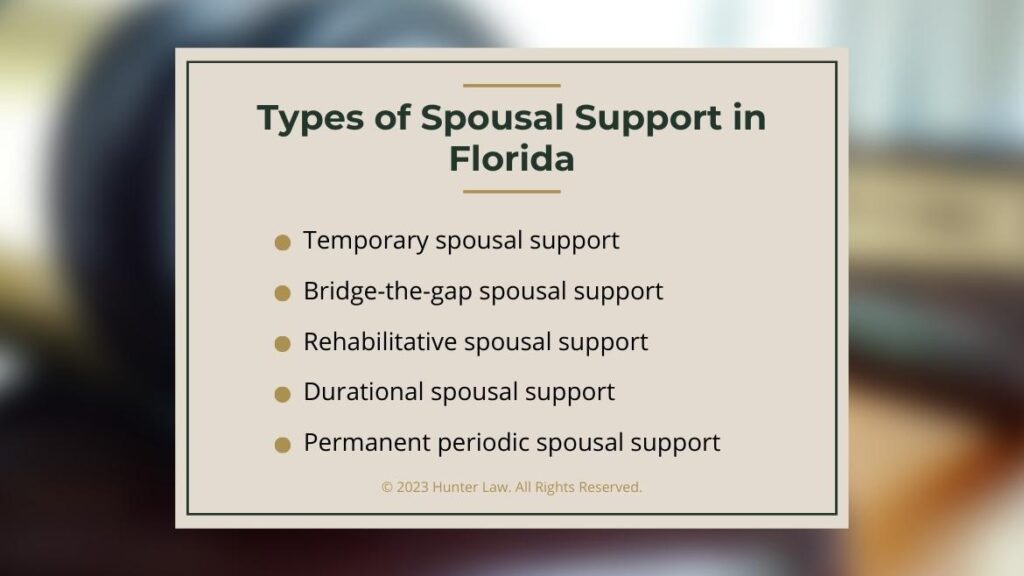
How Is Spousal Support Determined?
Spousal support, including how much might be paid, how long it will be paid, and which spouse is responsible for support payments, may be determined by several different factors, including:
- The length of the marriage
- The recipient spouse’s need
- The payor spouse’s ability to pay
- The standard of living experienced by both spouses during the marriage
- The health of each spouse
- Whether one spouse or another gave up opportunities, including professional, educational, or earning opportunities, for the marriage’s sake
- The contribution to the marriage by the parties
- Whether there was domestic violence or abuse in the marriage and, if so, who was responsible
Generally, spousal support is paid to the lower-earning spouse or the spouse with a more precarious financial situation, particularly if they have additional financial burdens (e.g., the mother of the couple is likely going to have primary custody of the children).
However, this is not universally true. If one spouse has the ability to earn more money but has so far chosen not to do so, they may not be eligible for larger ongoing spousal support payments from the higher-paid spouse. An online spousal support calculator can help you estimate how much you may need to pay or may receive from spousal support.
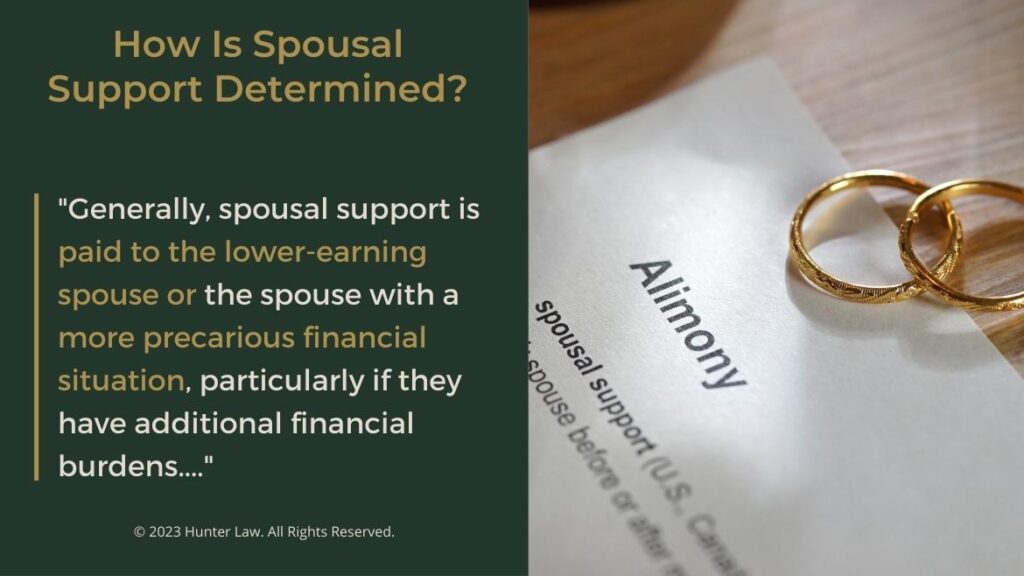
Florida Alimony Reform 2023 – Incoming Changes to Spousal Support Determination
The Florida legislature has approved various changes to how spousal support (and parenting plans) may be determined or altered by divorce courts in House Bill 1409. Governor DeSantis signed the bill into law on June 30, 2023. Here are some of the changes you can expect effective July 1, 2023:
- Permanent spousal support will be eliminated. No ex-spouse will be able to claim permanent alimony/spousal support going forward or after the above date. All future spousal support orders must have specific purposes, amounts, and durations
- The adultery of either spouse and the resulting economic impact may be considered
- The defined lengths of “short,” “moderate-term,” and “long-term” marriages will be longer (less than 10 years instead of 7, between 10 and 20 years instead of 7 and 17, and longer than 20 years instead of 17, respectively)
- Spousal support awards are normally reduced or terminated after an unanticipated substantial and material change in circumstances for the paying spouse. After HB 1409, the unanticipated requirement will be removed (e.g., a paying spouse no longer has to unexpectedly lose their job to petition for spousal support reduction or termination. They can just lose their job.)
- Parents will be able to purposefully relocate to be closer to the other parent and their children and petition a court to modify their parenting plan
Note that HB 1409’s changes to spousal support and parenting plans only take effect for cases filed or still pending by July 1, 2023. It doesn’t affect spousal support plans that were put into effect prior to this date.
Read more in our blog: Key Steps for a Successful Florida Parenting Plan
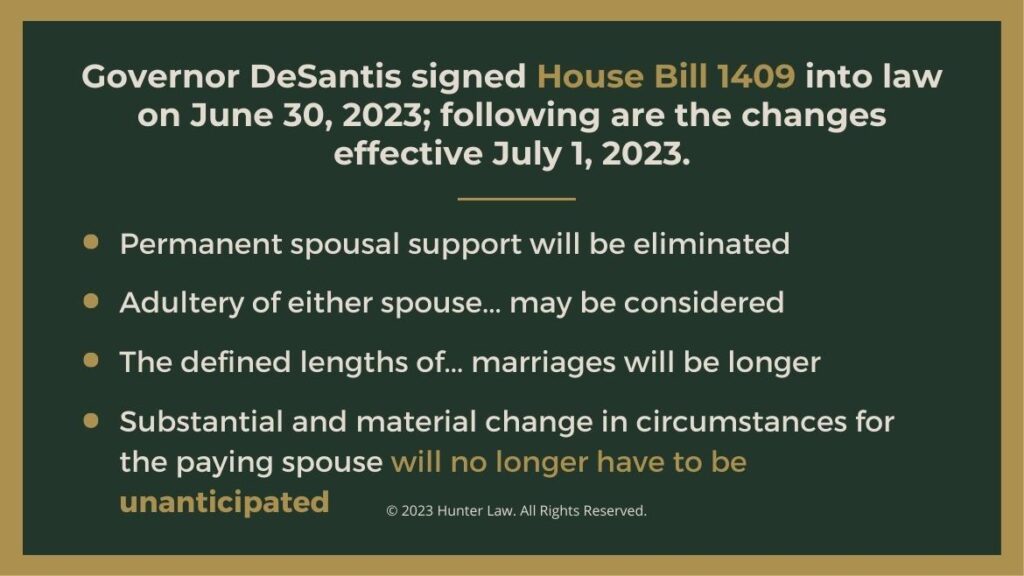
How Long Does Alimony Last?
In addition to determining the amount of spousal support—and whether it will be paid in the first place—the court will be in charge of answering other key questions, such as:
- How long should spousal support be paid?
- Are there circumstances where spousal support payments should be increased or ceased?
- And more
Spousal support will last for an amount of time based on the type of support you or your spouse are ordered to provide. For example, temporary spousal support ends after the divorce proceedings conclude.
As another example, currently, permanent spousal support never ends unless you successfully petition the court for a modification to your spousal support agreement. Tampa spousal support lawyers can provide you with sound counsel and advice if you have further questions regarding this matter.
Read more in our blog: 5 Things to Consider Before You Hire A Divorce Family Law Firm in Tampa, Florida
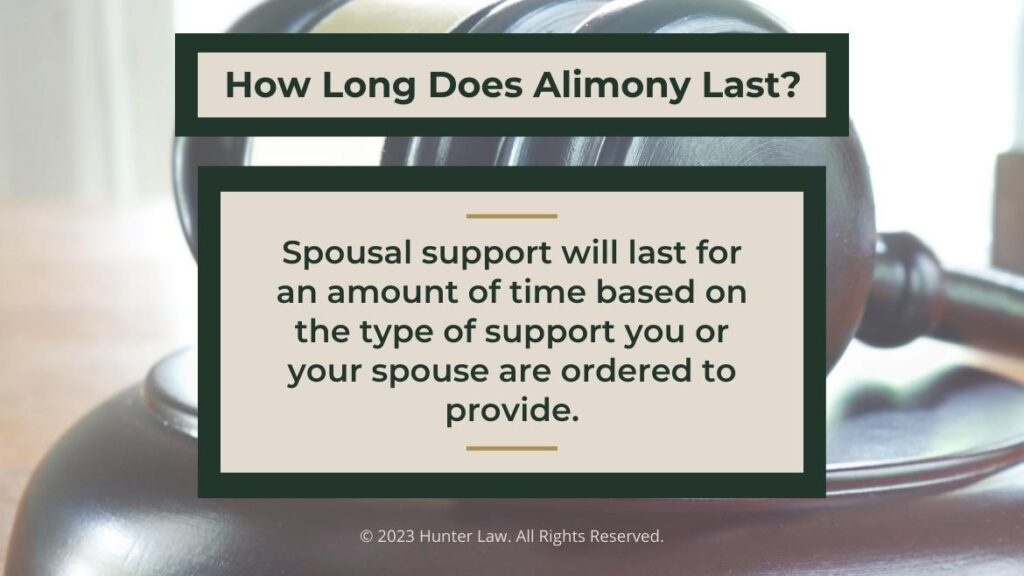
Which States Do Not Enforce Alimony?
While Florida does require spousal support payments in a variety of circumstances, some states do not enforce alimony or spousal support payments without significant evidence in their favor. These states include:
- Texas, which requires the petitioning spouse to show that they can’t fulfill reasonable basic needs or have a condition that makes it impossible for them to work
- Mississippi, which only grants alimony in situations where one spouse has a proven financial need for support, and the other spouse is proven to be able to provide it
- Utah, which prevents alimony payments from continuing beyond the duration of the marriage unless the spouse seeking further payments can prove that they are making good faith attempts to become self-sufficient
- North Carolina, which only grants spousal support in cases where one spouse is financially reliant on the other spouse
Why Contact a Spousal Support Attorney?
Even if you believe you will not be required to pay spousal support, it’s always a good idea to contact knowledgeable spousal support attorneys.
Spousal support attorneys are special legal representatives who know the ins and outs of Florida divorce laws and precedent cases. Because of this, they will be able to represent your needs successfully in court and provide key services, such as petition for you not to pay spousal support or petition for you to receive spousal support from your ex-spouse.
Perhaps more importantly, spousal support attorneys in Tampa can provide you with peace of mind and answer any questions you may have. In this way, you’ll be positioned to make the best decisions possible for yourself, your family, and your future life.
Read more in our blog: The Best Matrimonial Lawyer in Tampa, Florida
Contact Tampa Spousal Support Lawyers Today
Though there isn’t any difference between alimony and spousal support in Florida, you should still contact knowledgeable attorneys right away. At Hunter Law Group, our Tampa spousal support lawyers are well-equipped and ready to provide you with the legal and personal support you need to get through this trying time. Contact us today for a free consultation.


